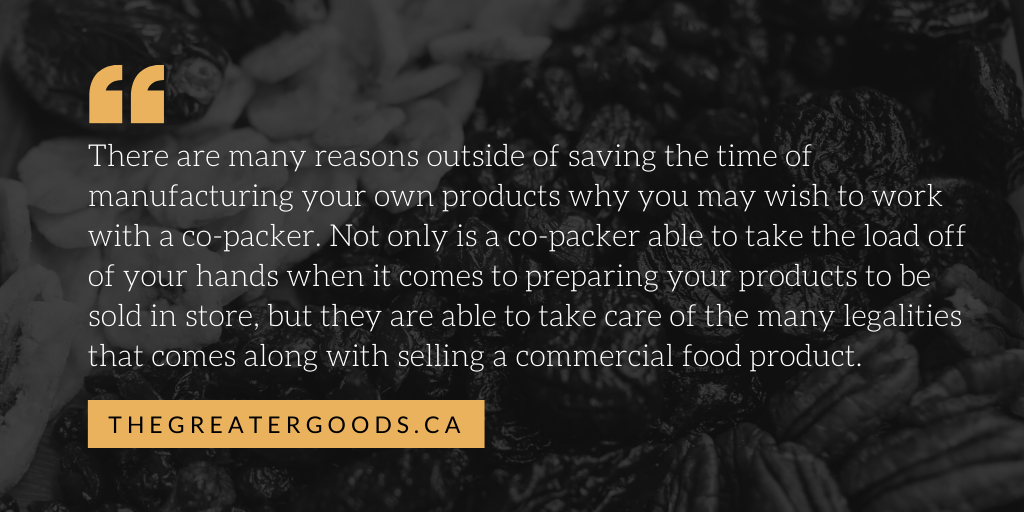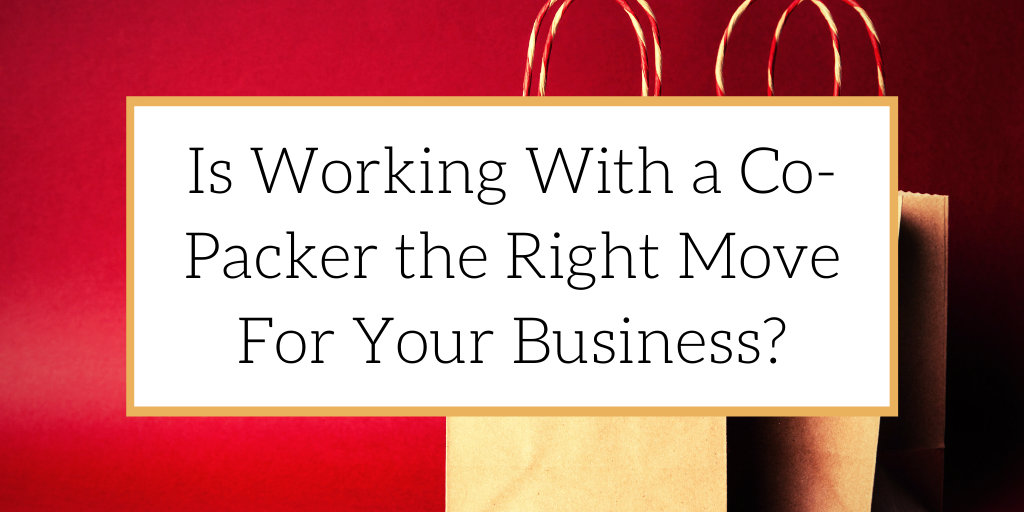Anyone who owns and runs a small food business knows that it is truly a labor of love. Whether crafting your own recipe from scratch or coming up with the perfect name and packaging, there are a multitude of steps that come before delivering that final product to stores. And when you’re constantly having to focus on the little details that come along with creating your masterpiece, it can be difficult to even have time to focus on growing your business, or how to market this product that you’ve just put in so much time and effort to. If you’re finding that this sounds like you, you might be ready to bring in the help of a co-packer. In this article, we take a look at what a co-packer is and you know that this is the right decision for your business.
What is a Co-Packer?
Bringing in the help of a co-packer can shave many valuable hours off of the time of a hardworking food business owner, allowing them to keep their focus on where it should be – running their business. While of course it is up to the owner to come up with the initial concepts and even the recipe for their products, a co-packer can take their product all of the rest of the way.
Pod Foods explains what a co-packer is and why your food business may highly benefit from one:
“A co-packer, or a contract packer, is a company that manufactures and packages a certain product for a client. For small businesses, outsourcing their manufacturing to a co-packer allows them to scale-up and meet growing demand, without having to invest in their own industrial setting. This can be a game changer for food businesses. Often, small teams are spread thin with production alone and don’t have any time to focus on the main driver for their business — sales. By offering their expertise and resources, co-packers help small businesses free up their time, letting them shift their focus to marketing and growing their brand.”
Understanding Why You Want to Work With a Co-Packer

There are many reasons outside of saving the time of manufacturing your own products why you may wish to work with a co-packer. Not only is a co-packer able to take the load off of your hands when it comes to preparing your products to be sold in store, but they are able to take care of the many legalities that comes along with selling a commercial food product.
Matt Aaron of Food Tech Connect explains why the benefits of working with a co-packer go far beyond saving you time:
“Investing in a larger production facility comes with a lot of costs like equipment, rent, labor and certifications. Depending on your clientele, you may need additional quality control certifications like HACCP, Kosher and USDA Organic. Big box retailers require a ton of certifications in order to carry your product. This means a lot more money if you are starting a new facility, and is the main reason many startups turn to co-packers as they scale. A co-packer also saves you time, allowing you to focus on growing your business versus being stuck in the kitchen and managing a production facility.”
How To Decide on a Co-Packer
Now that you’ve decided that the idea of working with a co-packer is in fact for you, it’s important to make sure that this is a feasible decision for your company. You will be required to do your research when it comes to picking a co-packer to find one that best fits your company. This will of course come down to the relationship you’d like with your co-packer, if they are able to handle your production size, and arguably the most important factor – who you can afford.
Recipal.com gives us some helpful tips on how to decide on a co-packer:
“If you are ready for co-packing, you have to start looking for the right one. Ask food business friends, scour the internet, talk to your local university food science department, and compile a list of potential co-packers.
Then comes the hardest part, which is actually evaluating each one:
Relationship quality – are they good people? Do you get along? What do other customers say? DON’T discount this factor.
Size – can they handle your production? Is your business big enough for them to care?
Scalability – if your business quadruples in size, can they handle it? Keep in mind that as your business grows substantially, you’ll need to eventually switch co-packers.
Proximity – are they near you physically? You’ll want to visit, check in, and sometimes help, so this is important.
Cost – is it economical? What are the hidden fees? How does it change as you grow?
Compatibility – do they have the right equipment and certifications for your product?”
Here at The Greater Goods, we offer consultation services for your business, from food production to distribution. If you’re looking for advice on how to get up and running, we offer a free consultation with our expert food industry consultants and food brokers.
